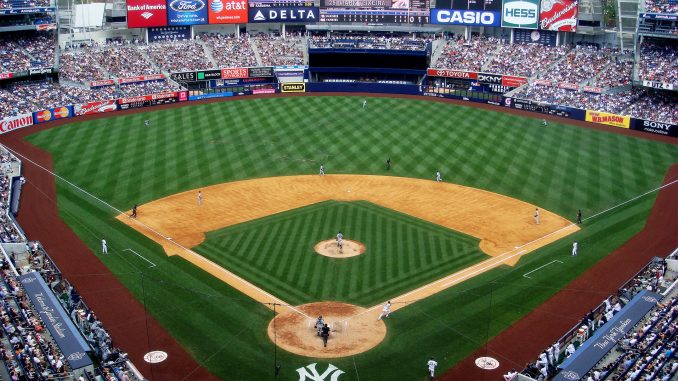
With COVID-19 developments still occuring nationwide, the MLB is analyzing the safest way to kick-off the 2020 season, which was slated to begin on March 26. The league is in the early stages of shifting the entirety of the season’s games to Arizona, where there are approximately 30 fields — ranging from major and minor leagues to collegiate level — within a 20-mile radius.
On April 14, Dr. Anthony Fauci — the director of the National Institute of Allergy and Infectious Disease and one of President Trump’s top COVID-19 advisors — spoke on the fate of professional sports in 2020, offering suggestions on how to do so in a safe and controlled way.
“Nobody comes to the stadiums,” Fauci told Peter Hamby on “Good Luck America,” the former-CNN reporter’s Snapchat original news series. “Put (athletes) in big hotels, wherever you want to play. Keep them very well-surveilled, but have them tested every week and make sure they don’t wind up infecting each other or their families, and just let them play the season out.”
The plan to move all activity to Arizona is, as of April 17, the most probable route the MLB will take for this adjusted 2020 season.
This would mean that all 30 teams relocate to Central Arizona and quarantine in hotels, playing their games in 10 spring training ballparks, and potentially Chase Field, the home of the Arizona Diamondbacks. If this plan were to be implemented, fans would not be allowed in stadiums and weekly COVID-19 tests would be administered to players and all other team officials, with self-isolation ordered for any positive case.
There are models of the plan that could allow 80-120 regular season games, with an “expanded playoff format.”
Of course, this plan is only possible if it is approved by owners and players. Although players make a pretty hefty salary to play professional ball, due to the original plan of a shortened season — which still stands — each player had already agreed to take prorated salaries, meaning they will divide their earnings by how much time they spent on the field. Now, without sales revenue from the gate, parking or concessions, owners will end up asking their players to take even less.
Though this may seem like an easy decision to make, as they are still being paid and playing baseball, the situation is far from ideal. By signing off on the changes, they will be agreeing to games played for no fans, as well as an obligation to remain six feet apart from other players in the stands, and will be forced to quarantine back in their hotel room until their next game.
In a regular season, players are forced to say goodbye to family and friends from home, only to see them in the stands at a later date. Now, they will sacrifice their time and social relationships for less money and more risk. Mike Trout, LA Angels center fielder, explained that if he were to be away from his family for these four months — or however long it may take — he would miss the birth of his first child.
One important aspect that also may deter plans is the climate of Arizona. In 2017, the city of Phoenix experienced record-high temperatures, reaching up to 119 degrees. Compare this to a record-high summer in New York City, which peaked at only 94 degrees in June of 2017, and you can see the drastic conditions players will be susceptible to. The aridness of Arizona may also impact players’ physical endurance, as with almost no humidity (an average of 34% compared to New York’s average of 63%), it can get hard to run or in severe cases, breathe.
For baseball fans across the country who have hoped to see teams take the field since opening day came and went, their prayers may be answered — but at what cost? A desire for live sports shouldn’t affect the livelihoods of MLB players, who do not exist solely for our entertainment. Remember, they’re people too.
